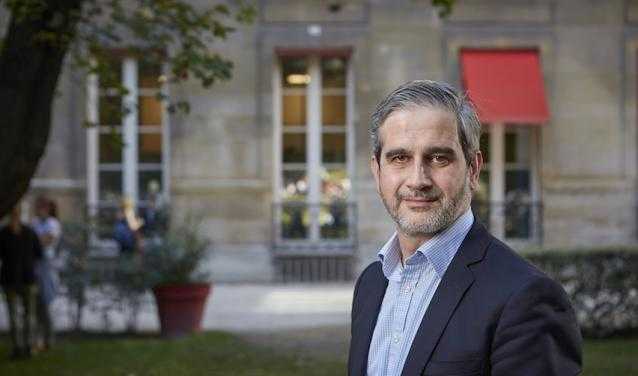Home>"This crisis affects all of our topics of research": Three Questions for Guillaume Plantin, Vice President for Research

28.04.2020
"This crisis affects all of our topics of research": Three Questions for Guillaume Plantin, Vice President for Research
How do states govern during a pandemic? Is democracy at risk? How can we remain a society under strict measures of social distancing? Can we preserve both the economy and the lives of citizens? By forcing us to take a step back and broaden our perspectives, social sciences help us find our way in an era of unprecedented uncertainty caused by Covid-19. Experts on issues that are only amplified by the pandemic, Sciences Po’s academic community stepped up to the plate to study and analyse the political, economic and social impacts of the crisis in the short and long term. See their research here; read below the interview with Guillaume Plantin, Vice President for Research.
Sciences Po’s academic community has very quickly produced in-depth analyses of multiple aspects of the pandemic, despite the situation being almost entirely unforeseen. What has made this reactivity possible?
Guillaume Plantin: The unprecedented shock of the Covid-19 crisis has given rise to immediate responses within all disciplines at all major research universities. A large number of researchers in the human and social sciences have put their expertise to use to produce rapid analyses of the implications of the crisis, as well as proposals for managing it. I am delighted to see research universities putting themselves at the service of the community and demonstrating their social utility in a global context that poses such an obstacle to scientific process and academic freedom.
Certainly, some of these lightning-quick contributions will lack the rigour and innovation of research in normal time. But the speedy construction of a “stopgap” intellectual framework for thinking about the crisis’ most immediate repercussions is part of the duty of academia. Sciences Po has actively stepped up to its own role in that effort. All our research centres and disciplines have shed their own light on the issue. Health system reorganisation, crisis management, the impact on socio-economic dynamics and public finances, geopolitical developments, perceptions of public decision-making and policy, protection of private life and civil liberties, historical perspectives and international comparisons: I cannot think of a single pocket of our expertise that has not been mobilised in the delivery of this first response.
Aside from the intellectual capital that has been mobilised, new research projects have also been launched. Can you tell us about those?
G.P.: What impact are lockdown measures having on inequality, attitudes to public policy or on the legitimacy of political leaders? Beyond these highly useful instantaneous analyses, there can be no more in-depth answers to such questions until further data has been collected. The strong empirical tradition of research at Sciences Po and the importance of surveys in our work put us in a good position to lead the data collection process. Several research teams have already received significant funding for projects centring on the production and exploitation of unprecedented databases. These include those of the OSC/the CDSP and Cevipof, all of which are outlined on our Covid-19 page.
But data production is only the first step for these initiatives, which will no doubt feed into many others. Data never speaks for itself. We will also need to construct and test the theoretical frameworks that allow information to be extracted from such data in a rigorous manner. Given the magnitude of the shock of Covid-19, I expect the need for interdisciplinarity to be even more pressing in this regard. Here again, our long tradition of dialogue between the five disciplines of Sciences Po will allow us, I hope, to draw the most important elements from the mass of raw data we are currently accumulating.
Might the current crisis and its aftermath have an influence on research conducted at Sciences Po?
G.P.: Our research will evolve because its subject matter will. A likely scenario is that issues already central to the concerns of our institution will continue to be a priority. Democratic erosion, economic polarisation, politics and social policy in western societies: all these challenges remain intact, while the means our societies use to tackle them are weakened by the sudden freeze in their activity. The wheel of digital innovation has clearly experienced an unprecedented acceleration. It is quite clear, furthermore, that the spread of pandemics like Covid-19 is not a purely endogenous problem – compared to meteor strikes, for example – but rather a symptom of the Anthropocene.
All subjects, even the most “classic” ones, like the evolution of international order, will be profoundly affected. In my area of research, central banks have become de facto decision-makers of tax policy. How should we envisage their independence in democratic regimes going forward? Finally, just as they have already caused massive disruption to teaching, the constraints of social distancing will have an effect on research activities, particularly when it comes to circulation and exposure to ideas. These immense challenges echo those that faced France when Sciences Po was founded almost 150 years ago.